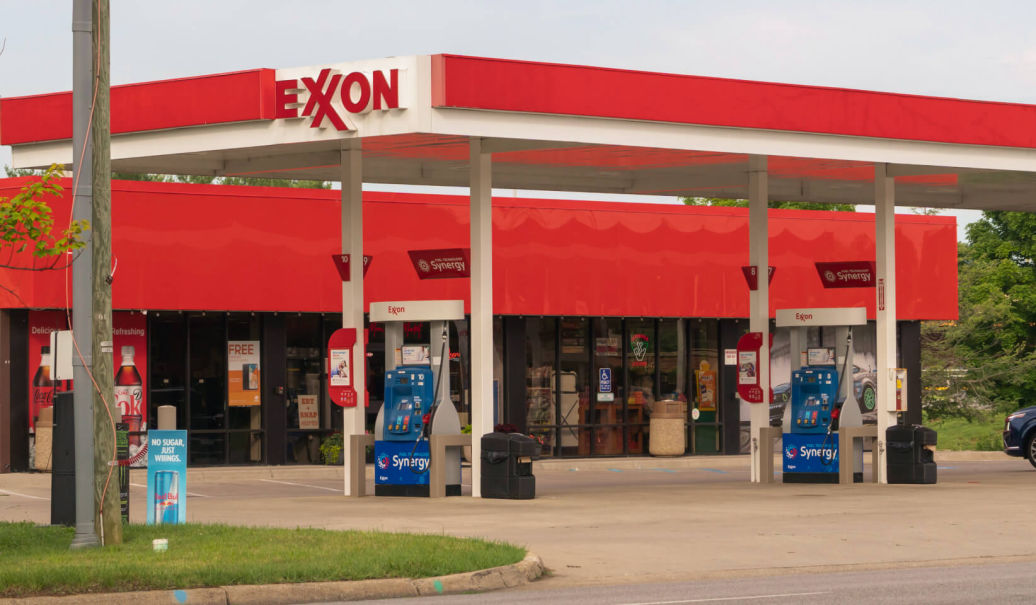Boosting Operational Efficiency with the Right Fleet Cards


In the dynamic landscape of fleet management, achieving operational efficiency is crucial for maintaining a competitive edge. One effective strategy to enhance this efficiency is the adoption of specialized fleet cards. These cards offer more than just a streamlined payment method for fuel; they provide comprehensive tools for monitoring expenses, controlling driver spending, and optimizing overall fleet performance. ExxonMobil offers tailored fleet card solutions designed to meet diverse business needs, empowering companies to manage their fleets more effectively.
Understanding Fleet Cards
Fleet cards are specialized payment instruments designed for businesses that operate multiple vehicles. Unlike standard credit cards, fleet cards offer detailed reporting on fuel purchases and vehicle expenses, enabling fleet managers to monitor and control spending effectively. By providing insights into fuel consumption patterns, driver behavior, and vehicle maintenance needs, fleet cards become indispensable tools for enhancing operational efficiency.
ExxonMobil offers two primary fleet card options, each tailored to specific business requirements:
1. ExxonMobil BusinessPro
The BusinessPro card is designed for businesses seeking control over fuel expenses with added flexibility:
• Flexible Fueling Options: Businesses can choose to fuel exclusively at Exxon and Mobil stations or extend access to 95% of U.S. gas stations, accommodating various operational needs.
• Rebates and Savings: Cardholders can earn rebates of up to 6¢ per gallon on fuel purchases at Exxon and Mobil stations, leading to significant cost savings over time.
• Comprehensive Expense Tracking: The card captures detailed information for every purchase, allowing managers to see who spends what, where, and when, facilitating better budgeting and financial planning.
• Employee Spending Controls: Managers can set spending limits by employee or card, restrict usage by dollar amount, time of day, and more, ensuring adherence to company policies.
• Automated Reporting: The card offers automatic fuel accounting and expense tracking, eliminating the need to collect employee fuel receipts and providing easy one-click access to detailed reports.
2. ExxonMobil FleetPro™
Tailored for mixed and heavy-duty fleets, the FleetPro card provides:
• Universal Acceptance: Accepted at both retail and commercial pumps, with the added benefit of Mastercard® acceptance for non-fuel purchases such as maintenance, travel expenses, and office supplies.
• Consolidated Reporting: All purchases are easily grouped for consolidated reporting and invoicing, simplifying administrative processes.
• Enhanced Security Features: Maintain control over purchases with expanded custom prompts, including Driver PIN and odometer readings, ensuring secure transactions.
Enhancing Operational Efficiency with Fleet Cards
Implementing the right fleet card can lead to substantial improvements in operational efficiency through:
1. Real-Time Expense Monitoring
Fleet cards provide immediate access to detailed transaction data, allowing managers to track fuel expenses in real-time. This transparency aids in identifying irregularities, preventing fraud, and ensuring that spending aligns with company policies.
2. Streamlined Administrative Processes
By automating fuel accounting and expense tracking, fleet cards reduce the administrative burden associated with manual receipt collection and data entry. This automation frees up valuable time for fleet managers to focus on strategic initiatives.
3. Improved Driver Accountability
With features like Driver PIN authorization and customizable spending limits, fleet cards promote responsible spending behaviors among drivers. Managers can set parameters that align with company policies, ensuring compliance and reducing unauthorized expenditures.
4. Data-Driven Decision Making
Access to comprehensive reports on fuel consumption, vehicle performance, and driver behavior enables informed decision-making. Managers can identify trends, optimize routes, schedule timely maintenance, and implement training programs to address specific issues, leading to overall operational improvements.
5. Integration with Telematics Systems
Some fleet cards offer integration with GPS tracking systems, providing real-time data on vehicle location, speed, and fuel usage. This feature enhances route planning and improves response times to unforeseen events.
Best Practices for Maximizing Fleet Card Benefits
To fully leverage the advantages of fleet cards, consider the following best practices:
1. Develop a Comprehensive Fuel Policy
Establish clear guidelines on fuel purchasing, including preferred fuel stations, acceptable fuel grades, and spending limits. Communicate this policy to all drivers to ensure consistency and compliance.
2. Utilize Automated Reporting
Set up automatic reports for critical metrics such as fuel consumption, driver performance, and exception reports for unauthorized purchases. Regularly reviewing these reports helps in promptly addressing issues and making informed decisions.
3. Monitor and Address Exception Reports
Pay close attention to exception reports that highlight transactions outside of established parameters. Investigate and address any anomalies to prevent fraud and ensure adherence to company policies.
4. Educate Drivers on Fuel-Efficient Practices
Provide training on fuel-efficient driving techniques and the importance of adhering to fueling policies. Encourage participation in rewards programs to motivate compliance and promote a culture of responsibility.
5. Regularly Review and Adjust Policies
Continuously assess the effectiveness of your fuel management policies and make adjustments based on data insights and changing business needs.